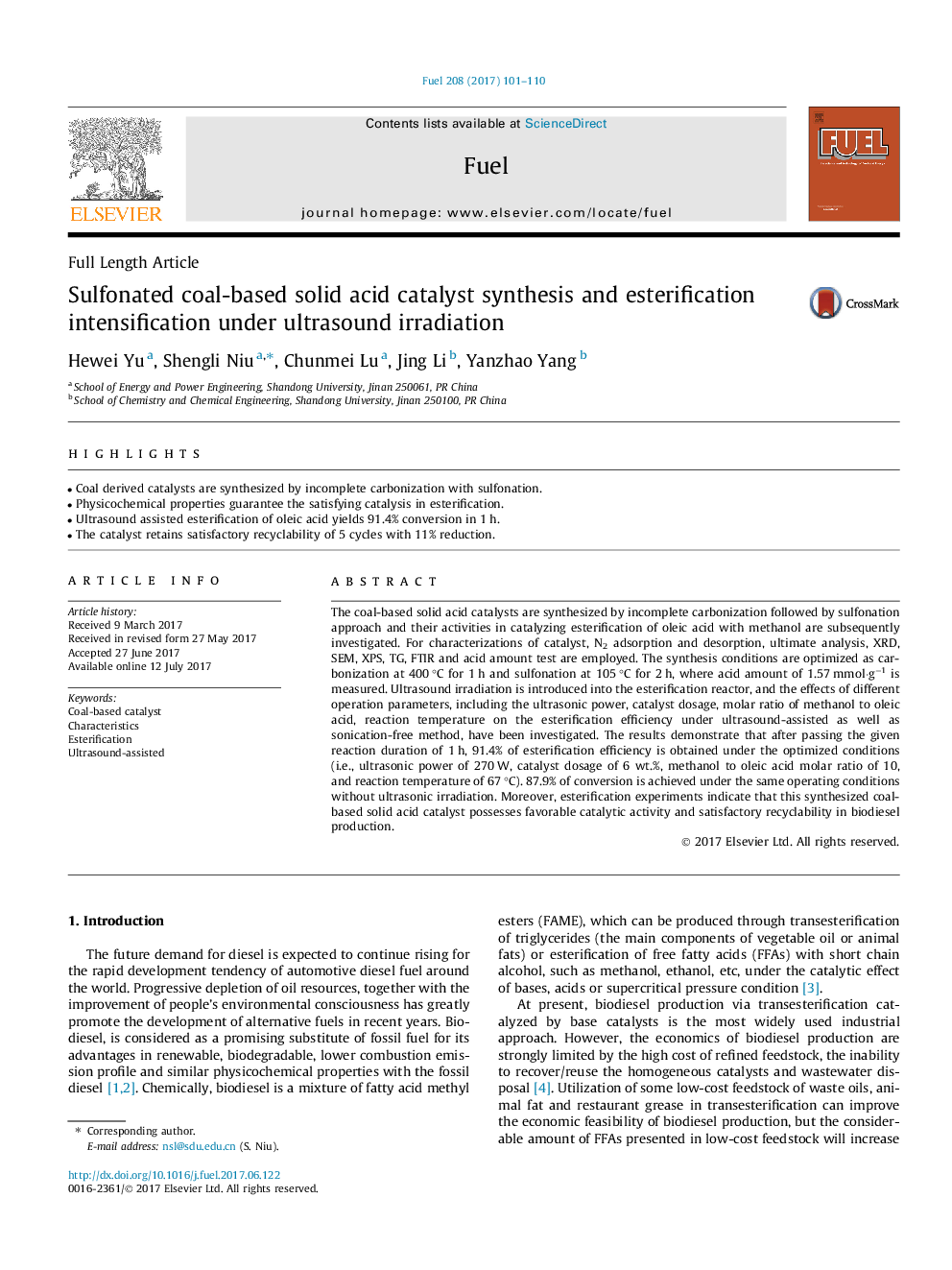| Article ID | Journal | Published Year | Pages | File Type |
|---|---|---|---|---|
| 6474060 | Fuel | 2017 | 10 Pages |
â¢Coal derived catalysts are synthesized by incomplete carbonization with sulfonation.â¢Physicochemical properties guarantee the satisfying catalysis in esterification.â¢Ultrasound assisted esterification of oleic acid yields 91.4% conversion in 1 h.â¢The catalyst retains satisfactory recyclability of 5 cycles with 11% reduction.
The coal-based solid acid catalysts are synthesized by incomplete carbonization followed by sulfonation approach and their activities in catalyzing esterification of oleic acid with methanol are subsequently investigated. For characterizations of catalyst, N2 adsorption and desorption, ultimate analysis, XRD, SEM, XPS, TG, FTIR and acid amount test are employed. The synthesis conditions are optimized as carbonization at 400 °C for 1 h and sulfonation at 105 °C for 2 h, where acid amount of 1.57 mmol·gâ1 is measured. Ultrasound irradiation is introduced into the esterification reactor, and the effects of different operation parameters, including the ultrasonic power, catalyst dosage, molar ratio of methanol to oleic acid, reaction temperature on the esterification efficiency under ultrasound-assisted as well as sonication-free method, have been investigated. The results demonstrate that after passing the given reaction duration of 1 h, 91.4% of esterification efficiency is obtained under the optimized conditions (i.e., ultrasonic power of 270 W, catalyst dosage of 6 wt.%, methanol to oleic acid molar ratio of 10, and reaction temperature of 67 °C). 87.9% of conversion is achieved under the same operating conditions without ultrasonic irradiation. Moreover, esterification experiments indicate that this synthesized coal-based solid acid catalyst possesses favorable catalytic activity and satisfactory recyclability in biodiesel production.
